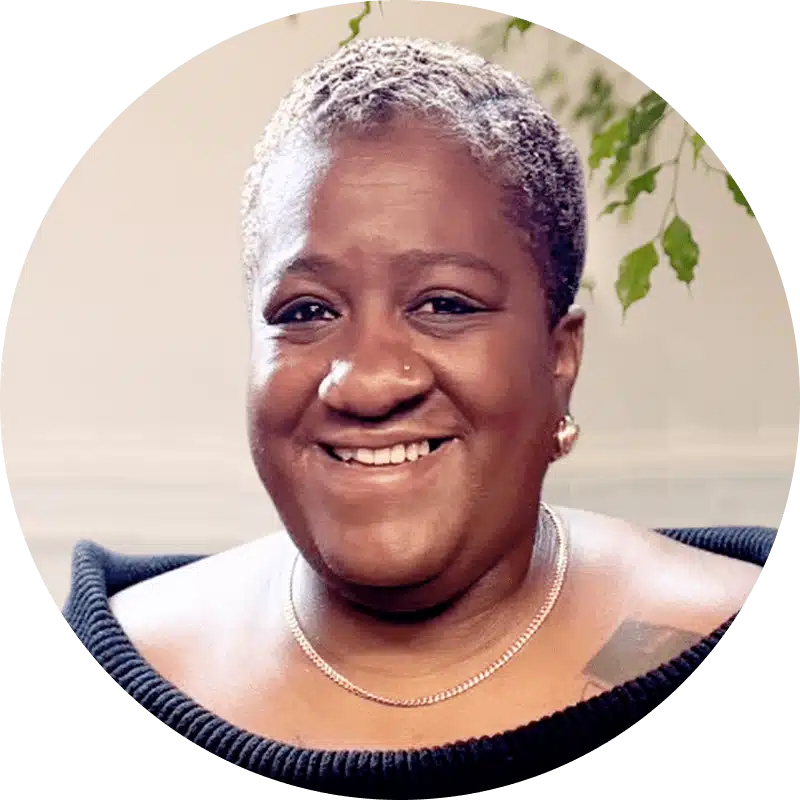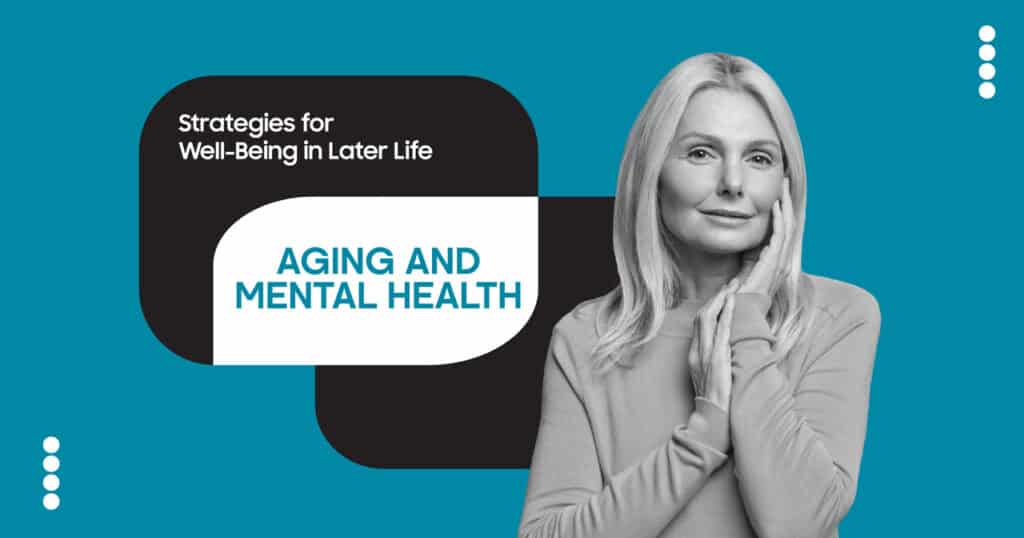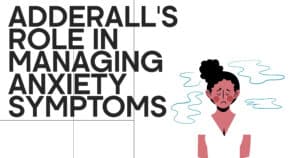How are old age and mental health related? Can I remain mentally stable as the years go by? Am I at risk of developing depression when I am older? The process of aging is challenging for every single person, without exception – whether you are dealing with physical health problems, losing contact with people you have spent years with, or noticing you are no longer as mentally sharp as you were one day, your mental health may be in danger.
In this article we will explore the link between age and mental health, explain how you can notice the signs of depression in elderly people, and demonstrate what can be done to improve the mental wellness of an older person.
Aging and How It Affects Mental Health
Elderly mental health takes a hit when the person is not ready to handle life-changing events and deteriorating health, which are often inevitable for older individuals. You will feel hopeless due to the lack of new opportunities you have had in the past. It may concern both your personal aspirations and professional goals – it is not a secret that many employers break the law when they prefer to hire a younger candidate as opposed to a more experienced yet older person. Although it is wrong and illegal, this is the sad reality of people trying a new career path.
One of the main side effects of aging and mental health struggles is increased anxiety – you may worry about getting injured, which might lead to a disability, fear a chronic illness preventing you from enjoying life, and be afraid of death. Naturally, constant stress can do no good for your overall health – reach out to a therapist to get professional mental health support.
Another hardship that is not at all unique for senior citizens is the necessity to continue living after they lose their loved ones. If your partner or friends die, it brings sadness and grief – not to mention, an elderly individual will think about their own passing. The problems start when the death starts to seem like a day out – do not confuse depression with grief and get help when your thought patterns impact you negatively.
How Caregivers Can Support & Improve Elderly Mental Health
It is hard to describe the importance of caregivers when it comes to the mental wellness of elderly people. These people deserve the greatest praise for ensuring old people get compassionate and respectful support no matter how difficult their lives get. Whether you are a close relative of a senior citizen who lives with them and offers them assistance and company, or you were hired by the person’s family to take care of them while you are busy, there are numerous ways you can make sure the elderly individual’s mental health remains strong:
- Encourage Independence
Many mental health issues are caused by a lack of independence – an elderly person may feel everything is decided and done for them, without any meaningful input. To avoid that, ensure the individual in question knows they are still in charge of their life, they get to choose what to do daily, and they can still cope with various physical tasks without your supervision.
- Support After a Loss
Depression death rates are particularly high in the older population – dealing with the loss of a loved one can be the last straw for an individual who already struggled emotionally which is why it is crucial to spend time with old people when someone they love dies. Moreover, a caregiver can notice when grief becomes depression and offer the elderly person to seek therapy to cope with the depression, grief, and sadness.
- Invite Them to Join You
If you plan to run errands, travel to a city nearby, or go to a museum or theater, why not invite an older person with you? Sure, it may be hard for them to go hiking or to join you in the gym every day but if you come up with an activity that is accessible to them, they will massively benefit from it as well as from planning the itinerary and communicating with you throughout the day.
5 Ways to Combat Aging’s Effect on Mental Health
Luckily, not all hope is lost – no matter how old the person is, there are ways to ensure their mood is elevated every day. Here are five tips you should take into account when figuring out how to enrich your life and improve its quality to live well during your old age:
| Advice | Description |
| Stay Physically Active | Depending on the fitness of the older adult, they should devote some time every day to a physical activity they can manage. If you are exercising, your sleep will get better, the chances of getting a stroke or heart attack decrease, and your mood is improved within a few weeks of moving around |
| Connect With Other People | Depression from grief is often caused by the elderly individual’s isolation after they bury their long-term partner. It is essential to remain in contact with people who care about you as well as strengthen these bonds and give back the love you are given |
| Create Realistic Routines | Accomplishing the goals you have set for yourself at the start of the day or year will make you feel proud and confident – no matter how simple or complicated the tasks are, you can raise your mood by coming up with a list of activities and chores you can carry out and be happy when they are behind you |
| Challenge Yourself | Many older people do not leave their comfort zone – they refuse to make new memories, travel, try out new food, or introduce themselves to modern technology. Make sure you continue to improve your cognitive function as you grow older |
| Discuss New Treatment With Doctors | Whether there are potentially beneficial treatment options you can talk about with your physician or you go to a therapist who can teach you how to cope with stress, always take advantage of different techniques that can help you enhance your physical and mental health |
Common Mental Health Issues in Older Adults
The older the person gets, the more likely it is for them to have mental health issues. Here are a few hardships elderly people may have to deal with:
| Problem | Description |
| Depression After Loss of Spouse and Friends | When an old couple is married, chances are one of them will die long before the other. It is extremely hard to cope with post-bereavement depression especially if there are no children or close friends to rely on |
| Cognitive Decline | Your memory and concentration are impaired when you are getting older. If you were not taking active measures to exercise your brain when you were younger, you may have trouble remembering the events that happened the other day as well as focusing on your daily activities |
| Mood Disorders | Increased stress, anxiety, depression, and suicidal ideations are common among people of a certain age. The difficulties they face daily may make them think there is no point in trying to improve their lives and even living itself |
| Loneliness and Isolation | Whether you recently experienced the loss of your partner, your children moved out or left for a different town, or your friends have been too busy with their own lives, it is very common for an older adult to feel lonely through no fault of their own |
Aging and Mental Health | FAQs
- How can I help an elderly person struggling with mental health?
Be there for older people especially if you notice their mental well-being took a turn for the worse – listen to them, pay attention to evident signs of mental and cognitive decline, and advise them to get professional help.
- What are the signs an older person has poor mental health?
Insomnia, loss of appetite, confused thoughts, erratic behavior, and ever-growing loneliness are among the most prevalent symptoms of poor mental state in older adults.
- What diseases make mental health worse?
If you have an untreated mental disorder, a mood disorder you failed to address when you were younger, or a chronic disease such as diabetes that makes you more dependable on others as you are growing older, it is likely these factors will contribute to the deterioration of your mental health.
- Can grief cause depression in an elderly individual?
There is a proven connection between depression and grief no matter how old the individual is; unfortunately, an elderly person is often left alone to cope with their loss which leads to increased mental suffering and depression.
- Can older people benefit from therapy?
Individual counseling and group therapy sessions play a significant role in the elderly person’s mental wellness. If you can talk one-on-one with a therapist without fear of judgment and relate to other individuals who have gone through similar experiences, it can help you recognize the signs of depression in grief and boost your mood to ensure the last years of your life are spent in peace and comfort.







